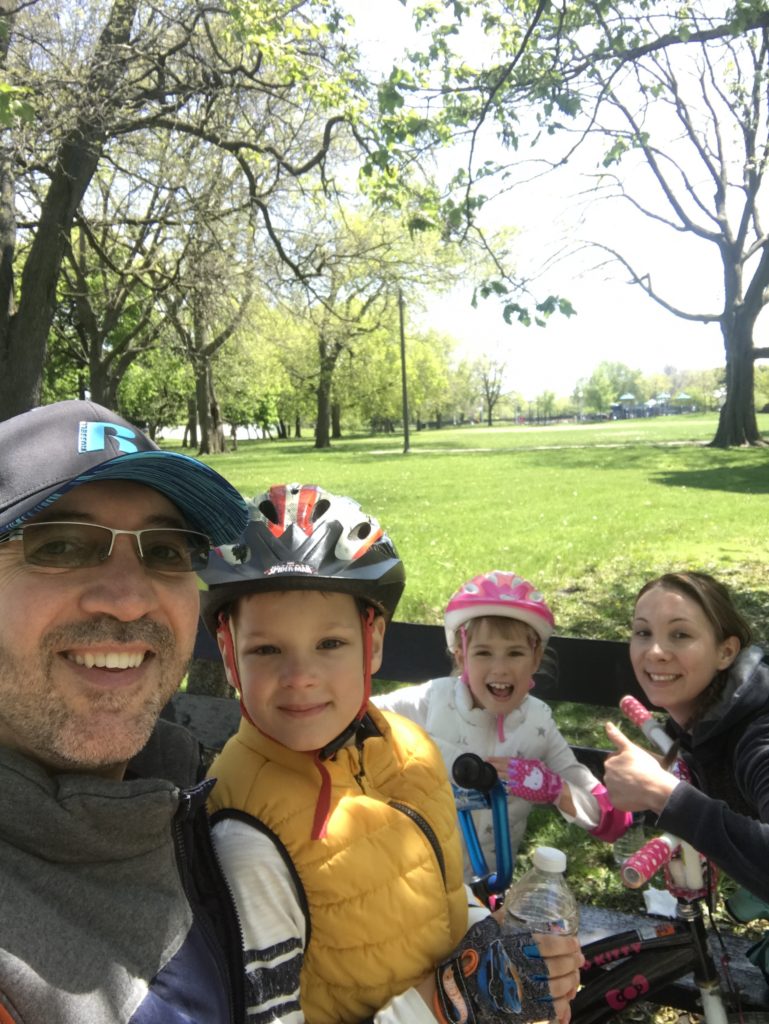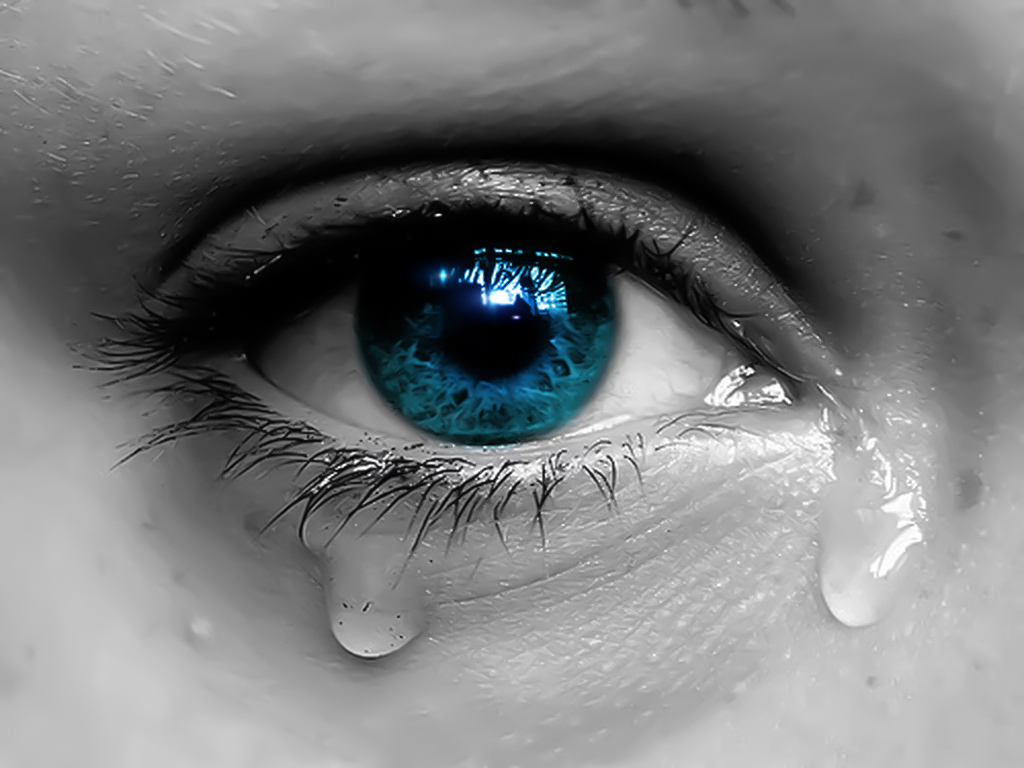I have a secret to tell about many deep and spiritual people. It’s a dark secret many of us do not wish to talk about. Many of us wish it was not there. Many will pretend it is not there. But the fact of the matter is that it is universal and epidemic. It is real and affects most of us in profound ways.
We doubt God. We struggle. We hurt, we cry, we bleed. The Bible is full of real stories of real people who doubt too. And God left these verses, chapters, and stories of these people to remind us that He can handle our doubts–and yours too.
Never mistake the silence of God for the absence of God
It is echoed in the Psalms:
“But I, O Lord, cry out to you; in the morning my prayer comes before you. O Lord, why do you cast me off? Why do you hide your face from me?” (Psalm 88:13-14, NRSV).
“Why, O Lord, do you stand far off? Why do you hide yourself in times of trouble?” (Psalm 10:1, NRSV. And in Psalm 30, he laments God’s hiding after a time when the psalmist had confidence: “When I felt secure, I said, ‘I will never be shaken.’ O Lord, when you favored me, you made my mountain stand firm; but when you hid your face, I was dismayed” (Psalm 30:7, NIV).
Psalm 44 expresses it: “Rouse yourself! Why do you sleep, O Lord? Awake, do not cast us off forever! Why do you hide your face? Why do you forget our affliction and oppression?” (Psalm 44:23-24, NRSV).
I have had many intellectual struggles where God seemed absent.
At times, it feels like you are talking to the ceiling in your prayers. Cricks is all I hear.
We are not alone, even atheists and skeptics alike also struggle with this, claiming that “if God just reveled himself to me, I would believe in him.” Really?
J.L. Schellenberg in his book Divine Hiddenness and Human Reason, argues as follows:
1) If there is a God, he is perfectly loving.
2) If a perfectly loving God exists, reasonable nonbelief does not occur.
3) Reasonable nonbelief occurs.
4) No perfectly loving God exists (from 2 and 3).
5) Hence, there is no God (from 1 and 4).
CS Lewis wrote after God took his new wife with cancer:
“When you are happy, so happy you have no sense of needing Him, so happy that you are tempted to feel His claims upon you as an interruption, if you remember yourself and turn to Him with gratitude and praise, you will be — or so it feels— welcomed with open arms. But go to Him when your need is desperate when all other help is vain, and what do you find? A door slammed in your face, and a sound of bolting and double bolting on the inside. After that, silence.” ― C.S. Lewis, A Grief Observed
It can also be called the “Dark Night of the Soul.” A book by this title was written in the 16th-century by the Spanish poet and Roman Catholic mystic Saint John of the Cross. It’s that period of time in a believer’s life when God seems distant and silence to us and his silence is very loud!
Mother Theresa’s book, which was published after her death in 1997, Come Be My Light: The Private Writings of the Saint of Calcutta talks about the problem too. She wrote Calcutta Archbishop Ferdinand Périer the following, her words are heart-breaking!
“There is such terrible darkness within me as if everything was dead…In my heart, there is no faith—no love—no trust—there is so much pain—the pain of longing, the pain of not being wanted. I want God with all the powers of my soul—and yet there between us—there is terrible separation. I don’t pray any longer.’ “Lord, my God, who am I that You should forsake me? The child of your love—and now become as the most hated one…You have thrown away as unwanted—unloved…So many unanswered questions live within me afraid to uncover them—because of the blasphemy—If there be a God—please forgive me…I am told that God loves me, and yet the reality of darkness & coldness & emptiness is so great that nothing touches my soul.”
Still, she kept trying to pray:“I want to speak—yet nothing comes—I find no words to express the depths of the darkness. In spite of it all—I am His little one—I love Him….”
This is raw as the Psalms were.
God does not promise us a rose garden in this world. This is not heaven, it was never meant to be. Maybe the question each and every one of us should not be asking is, “why is God silent or why is God allowing this to happen to me?” Rather we should be asking is “How will I honor God and make the best of every opportunity–even the most horrible and empty of feeling?” Ask “What can I do today to be a light in a dark world, regardless of feelings and how can I cultivate feelings of love, joy, peace, patience, kindness, and self-control?” Maybe it is true that my feelings will follow my actions.
Remember love is not to be reduced to emotions, nor is the silence of God to be reduced to the absence of God.
In his work on “Divine Hiddenness” and Paul K. Moser Professor & Chairperson Department of Philosophy Loyola University Chicago, argues that it may be, at times, reasonable, for some people not to know or experience God, or to even believe in God because of the hiddenness of God. [See Paul K. Moser, The Elusive God: Reorienting Religious Epistemology (New York: Cambridge University Press, 2008).]
One possible reason is that God hides and thus permits inculpable [guiltless] nonbelief because this hiding prompts us to recognize the wretchedness of life on our own, without God, and thereby stimulates us to search for Him contritely and humbly.
If I am add, according to theists, God does revel himself to those who truly seek Him—but not in the way we may expect or desire or when we desire.
Paul Moser, writes:
“God does not seek human faith, belief, or knowledge regarding God apart from (divinely intended) transformative human reception of divine love. In other words, God does not offer signs to prompt human faith based just on intellectual reflections or any other factors apart from the transformative human reception of divine love. Accordingly, contrary to the attitudes of many philosophers, divine signs are not offered as the stuff of a spectator sport.” (Italics mine!)
Let me rephrase it, God is not into doing miracles like fireworks for atheists or believers alike.
The Omnipotent God could with his all-powerful might, make all the world bow down to him now, but he choose not to do that–at this time. He is interested in a humble heart that seeks truth. (See Mary’s Magnificat in Luke 1:46-55 for a good example of this).
If God is after this specific heart response, then it may be that God’s degree of obviousness is perfectly calibrated with the accomplishment of this sort of response.
Yes, God does hide himself and his truth to certain people and at certain times.
Is that a bad thing?
In Luke 10:21 it says that “At that time Jesus, full of joy through the Holy Spirit, said,
“I praise you, Father, Lord of heaven and earth, because you have hidden these things from the wise and learned, and revealed them to little children. Yes, Father, for this is what you were pleased to do.”
If God did reveal himself to us when we asked and we were not ready, most of us would recoil in horror at his holiness and our sin. It could kill us!
In his book, Pensees, the 17th century philosopher and mathematician Blaise Pascal wrote:
We can understand nothing of God’s works unless we accept the principle that he wished to blind some and enlighten others … Thus it is not only right but useful for us that God should be partly concealed and partly revealed, since it is equally dangerous for man to know God without knowing his own wretchedness as to know his own wretchedness without knowing God.
There are some of us, in our present condition cannot handle God reveling himself to us. That is why God seems to be hidden to some and not to others.
Ladies and gentlemen, some of us are not ready, no matter what we think, to experience a direct revelation of God himself. In fact, it could be deadly for us to! It is the mercy of God that he hides himself at times.
See C. S. Lewis, “The Efficacy of Prayer,” in The World’s Last Night: And Other Essays (New York: Harcourt, Brace & World, 1960).
Who said these words “My God My God why have you forsaken men?” It is the very one who was closest to God than anyone ever was or could possibility be!” —Jesus.
As a father sees when his children struggle but does not intervene for their own good, God watches us with love and tears. We must never mistake the silence of God for the absence of God
Chad Thornhill reminds us that when one’s faith in others is shaken, or destroyed, this cannot be allowed to shake one’s faith in God. Whether a person’s family relationships were unsupportive or unloving, their intimate relationships were abusive or painful, or they have experienced disappointment in their life, they must remember that God does not respond to his children like fallen people do. Experiencing poor parenting or emotionally traumatic relationships with others is not a poor reflection on the character of God, but only on the character of the individuals involved. God is a loving and faithful Father who cares for his children far more than any earthly father could. As Jesus’ words remind us, “If you, then, though you are evil, know how to give good gifts to your children, how much more will your Father in heaven give good gifts to those who ask him!” (Mt. 7:11, NIV)
When you do feel distance from God, ask yourself why.
How was your prayer life before? What about your reading of Scriptures? How was your corporate worship and connection with the body of Christ [others who are on fire for God]? Are you in any sin that is closing the door to your fellowship with God? If none of these are true, then it could also be a time of testing from God to refine you.
Allow him to do his work, in the meantime, do yours.
(See Chad Thornhill, whose work on Divine Hiddenness, helped me here for more information!)
I close this illustration from the children’s story of the Silver Chair by CS Lewis:
“Jill got up and looked round her very carefully. There was no sign of the lion…..But her thirst was very bad now, and she plucked up her courage to go and look for the running water…The wood was so still that it was not difficult to decided where the sound was coming from. It grew clearly every moment and , sooner than she expected, she came to an open glade and saw the stream, bright as glass, running across the turf a stone’s throw away from her. But although the sight of the water made her feel ten times thirstier than before, she didn’t rush forward and drink.She stood as still as if she had been turned to stone and her mouth wide open. And she had a very good reason; just on this side of the stream lay the lion! It lay with its head raised and its two fore-paws out in front of it, like the lions of Trafalgar Square. She knew at once that it has seen her, for its eyes looked straight into hers for a moment and then turned away-as it it knew her quite well …”if I run away, it’ll be after me in a moment.” thought Jill. “And if i go on, I shall run straight into its mouth.” Anyway, she couldn’t have moved if she had tried, and she couldn’t tale her eyes off it. How long this lasted, she could not be sure’ it seemed like hours. And the thirst became so bad that she almost felt she would not mind being eaten by a lion if only she could be sure of getting a ,mouthfuls of water first. “IF YOUR THIRSTY, YOU MAY DRINK.”
They were the first words she had heard since Scrubb had spoken to her on the edge of the cliff. For s second, she stares here and there, wondering who has spoken. Then the voice said again “IF YOU ARE THIRSTY, COME AND DRINK,” and of course she remembered what Scrubb had said about animals talking in the other world, and realized it was the Lion speaking. Anyway she had seen its lips move this time, and the voice was not like a man’s. It was deeper, wilder, and stronger; a sort of heavy, golden voice. It did not make her any less frightened than she had been before, but it made her frightened in a different way. “ARE YOU NOT THIRSTY?” said the Lion. “I’m dying of thirst,” said Jill.
“THEN DRINK,” said the Lion. “May I-could I-would you mins going away while I do?” said Jill. The Lion answered this only by a look and a very low growl. And Jill gazed at is motionless bulk, she realized that she might as well
have asked the whole mountain to move aside for her convenience. The delicious rip piling noise of the stream was driving her nearly frantic. “Would you promise not to- do anything to me if I do come?” said
Jill. “I MAKE NO PROMISE,” Said the Lion.
Jill was so thirsty now that, without noticing it, she had come a step nearer. “Do you eat girls?” she asked.
“I HAVE SWALLOWED UP GIRLS AND BOYS, WOMEN AND MEN, KINGS AND EMPERORS, CITIES AND REALMS,” said the Lion. It didn’t say it as if it were boasting, jor as if it were sorry, nor as if it were angry. It just said “I daren’t come a drink,” said Jill. “THEN YOU WILL DIE OF THIRST,” Said the Lion. “Oh dear?” said Jill, coming another step nearer. “I suppose I must go and look for another stream thee.”
“THERE IS NO OTHER STREAM,” Said the Lion.
There is no other stream no other God no other life. John records for us the following incident with Jesus:
From this time many of his disciples turned back and no longer followed him. “ You do not want to leave too, do you?” Jesus asked the Twelve. Simon Peter answered him, “Lord, to whom shall we go? You have the words of eternal life. We have come to believe and to know that you are the Holy One of God.”
Brothers and sisters, when we don’t feel, we trust what we know. The evidence that God exists, that Jesus rose from the dead is reasonable and to most undeniable. Trust even when you can’t feel. Trust the evidence and the hand that was pierced. It is worth it. He is worth it.
There is no other stream of life, except the stream of blood from Jesus on the cross to redeem us. There is no other stream of life except the spiritual water that comes from God to give us meaning and purpose in life. There is no other stream.
After my son died, we named him, Enoch. Enoch was the name we choose because he was the prophet of God who was taken by God. We named him Enoch for God took him. We then began the process, I would never have imagined I would. But with my precious wife by my side, we did consider adoption, and as a result, we adopted two precious children from the Republic of Moldavia and brought them home with us in Chicago. They are here today with us. Out of the ashes of Enoch’s death came the phoenix of life with these two precious ones. Their picture is below. It was taken after learning how to ride their bikes with our wonderful friend Angie!
We would never have had the blessings they bring if God had not taken Enoch home. He knew better.
His silence was better than all the words the world could offer.

Trust him. For there is no better stream
Podcast: Play in new window | Download



